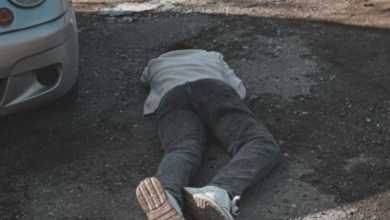Parents of Chinese student poisoned in 1994 call for new investigation

Chinese prosecutors recently accepted an application to examine irregularities in the police investigation of an unsolved poisoning case that has attracted public attention for nearly three decades.
Zhu Ling, a chemistry student at Tsinghua University in Beijing, began experiencing symptoms of poisoning from the heavy metal thallium in late 1994. She was left paralyzed with brain damage, and required 24-hour care from her parents.
Nobody has ever been charged in the case, but public speculation over one of Zhu’s college roommates — who was investigated by police and eventually released due to a lack of evidence — remains intense. Zhu’s death at the age of 50 in December last year sparked a wave of condolence and calls for the investigation of the case to be reopened.
Zhu’s parents handed an investigation supervision application to the Supreme People’s Procuratorate on April 15, requesting oversight of possible malpractice by authorities involved in the case and urging them to launch a new probe, according to a statement released by an independent foundation that has assisted Zhu’s parents for years. The application claims that investigators unlawfully handled and closed the case.
They did not ascertain that the suspect was uninvolved in the case, failed to apply overseas travel restrictions and allowed her to change her personal identity information.
On Wednesday, the foundation said that Zhu’s parents received a text message from the top procuratorate saying their application had been forwarded to the Beijing People’s Procuratorate.
The Beijing procuratorate notified them that their application had been received and would be handled according to law.
Wu Chengzhi, Zhu’s 84-year-old father, told Southern Metropolis Daily last month that his late daughter’s case should not be forgotten because she was poisoned and justice has not been meted out. He felt a responsibility to appeal on her behalf and get to the bottom of the case.
The Beijing Public Security Bureau, which led the initial investigation of the case, made its most recent statement about it in 2013, saying that the six months between the appearance of Zhu’s first symptoms and the filing of a police report had impeded the investigation.
Without surveillance footage and physical evidence of the crime, police were unable to obtain direct proof to convict a suspect and therefore could not solve the case, it said. It denied any political tampering in the investigation and asked the public to adopt a rational attitude toward it.










